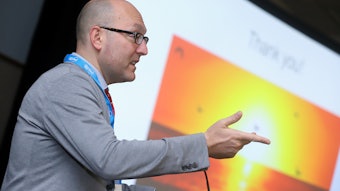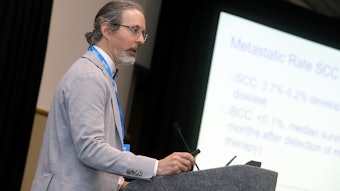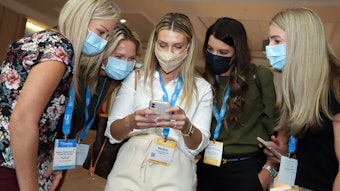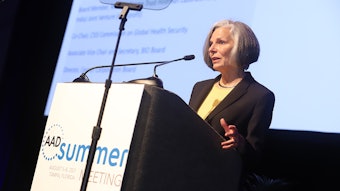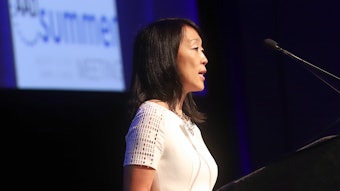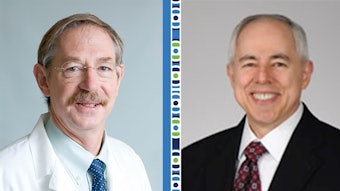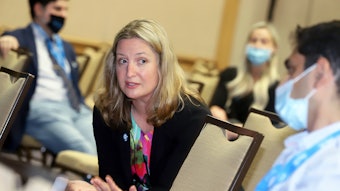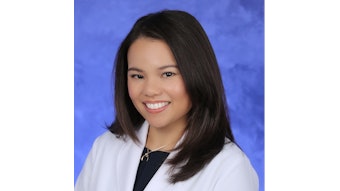HPV vax, psoriasis biologics, and caregiver quality of life highlight FiRST session
Pushing the frontiers of research, science, and technology.

The latest breakthroughs and innovations in skin science and technology were front and center for the Aug. 7 session, “Frontiers in Research, Science and Technology (FiRST)” (S011). Compared to the late-breaking abstract sessions, “the FiRST session is traditionally smaller, nimbler, and more willing to push earlier stage data, especially in the areas of technology and artificial intelligence,” said Hensin Tsao, MD, PhD, FAAD, the session’s co-moderator. Dr. Tsao is the Richard Allen Johnson, MD Endowed Chair in Dermatology, and head of the Skin Cancer Genetics Laboratory/Wellman Center for Photomedicine at Massachusetts General Hospital in Boston. ![Aad Plenary Speakers[46]](https://img.ascendmedia.com/files/base/ascend/hh/image/2021/08/AAD_PlenarySpeakers_46_.610b0b457a807.png?auto=format%2Ccompress&fit=max&q=70&w=400)
The FiRST session featured results from clinical and pediatric studies, and insights on basic science, cutaneous oncology, and procedural dermatology. Here’s a brief summary of four of the 11 presentations.
HPV vaccination and dermatologic surgery
“Mounting evidence suggests that HPV DNA can be transmitted via the surgical plume created during dermatologic surgery, such as laser procedures and electrosurgery,” said Ross L. Pearlman, MD, a PGY4 dermatology resident at the University of Mississippi Medical Center in Jackson. Dr. Pearlman presented results from a survey study of American College of Mohs Surgery members: “Adoption of Human Papillomavirus Vaccination Among Dermatologic Surgeons.” According to the survey, most dermatologic surgeons in the cohort were not vaccinated against HPV. Cases have been reported of surgeons who have developed HPV-positive cancers of the head and neck.
“Changing expert recommendations suggest that HPV vaccination should not just be based on age and sex, but also on occupational risk,” Dr. Pearlman said. “To help surgeons make educated decisions about vaccination, it would be helpful if our own organization, the American Society for Dermatologic Surgery and the American College of Mohs Surgery, developed evidence-based recommendations for HPV vaccination.” Meanwhile, “surgeons need to decide for themselves whether vaccinating based on their occupational risk is right for them,” Dr. Pearlman said.
Bimekizumab shows promise for psoriasis
“We have another dramatic, new effective treatment for psoriasis,” said Mark Lebwohl, MD, FAAD, dean for clinical therapeutics and chairman emeritus in the department of dermatology at Icahn School of Medicine at Mount Sinai in New York City. Bimekizumab is a monoclonal IgG1 antibody that selectively inhibits both interleukin-17A and interleukin-17F. Dr. Lebwohl reported the results of a preliminary study, which followed patients with psoriasis undergoing bimekizumab therapy who achieved clear or almost clear body surface area of less than 1% and their Psoriasis Area and Severity Index (PASI) scores.
“Patients who achieved clear or almost clear body surface area of less than 1% and PASI 100 at week 16, who were almost clear, was 87.5%,” Dr. Lebwohl said. “When you followed them for two years, the proportion of patients who were still clear or almost clear was 90%. These dramatic benefits show a durable response to bimekizumab.”
AD treatment improves quality of life
The disease burden of severe atopic dermatitis (AD) is well-recognized to extend beyond the patient to other members of the household, particularly parents and caregivers of children with AD. Carden Simcox, PhD, associate director of field medical affairs at Regeneron, shared results from a Phase 3 study of dupilumab with concomitant topical corticosteroids (TCS) in pediatric patients 6 to 11 years of age with severe AD, which included an analysis of the quality of life of their families and caregivers.
“The results showed dupilumab added to TCS in children 6 to 11 years with severe AD improved family quality of life measures for the caregiver and family across all domains assessed, with continued improvement through the 16-week treatment period,” Dr. Simcox said. Dupilumab is the first approved biologic for moderate to severe AD in children 6 to 11 years. “These results show its potential to help reduce the burden on caregivers and improve family quality of life,” Dr. Simcox said.
Potential risk of biologic agents
Research suggests the development of cutaneous T cell lymphomas following exposure to a biologic agent. “While it’s a rare complication, it’s still a complication nonetheless,” said Lauren Schaefer, a fourth-year medical student at Mayo Clinic School of Medicine in Rochester, Minnesota. Schaefer reported on a study examining the number of patients at her institution who developed cutaneous lymphoma after exposure to biologic agents. “We don’t fully understand all of the ramifications of biologic agents, but it’s important to improve clinician awareness so we’re better stewards of these drugs,” Schaefer said.
